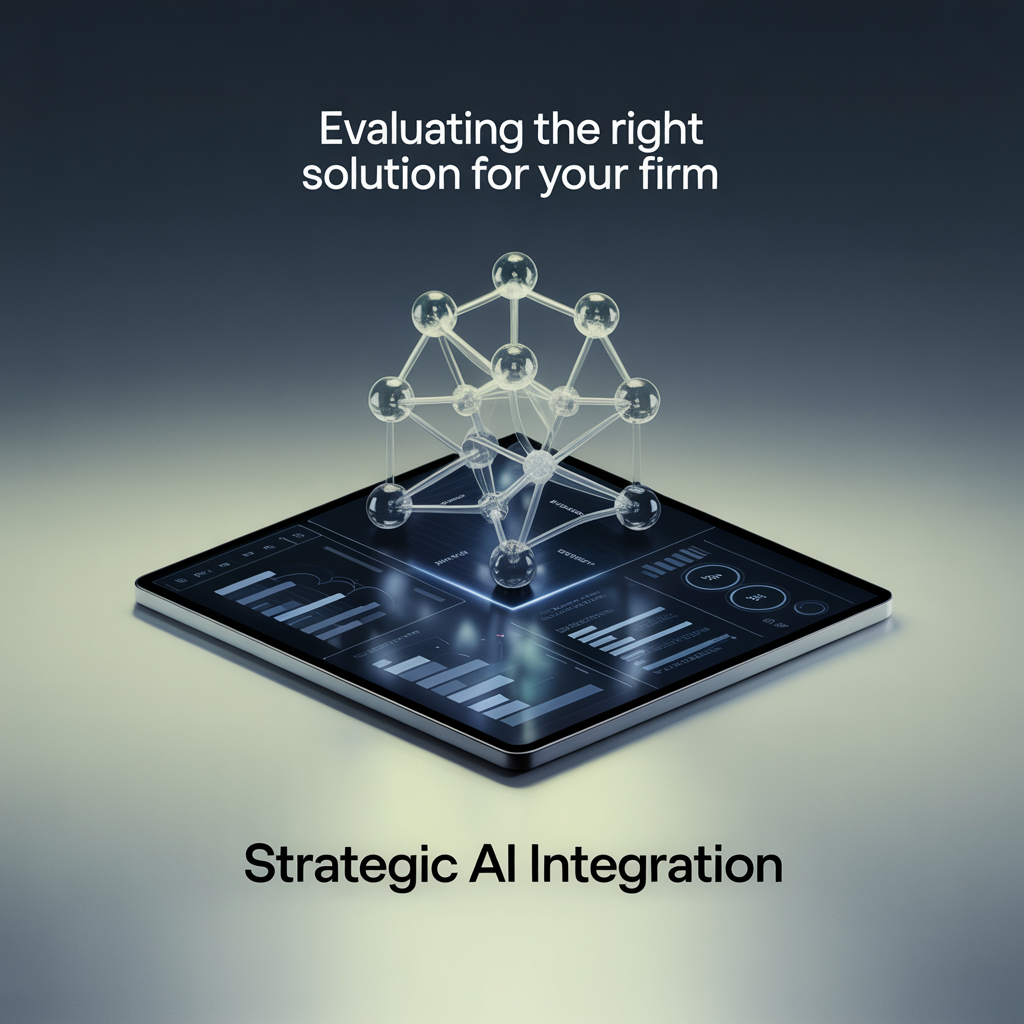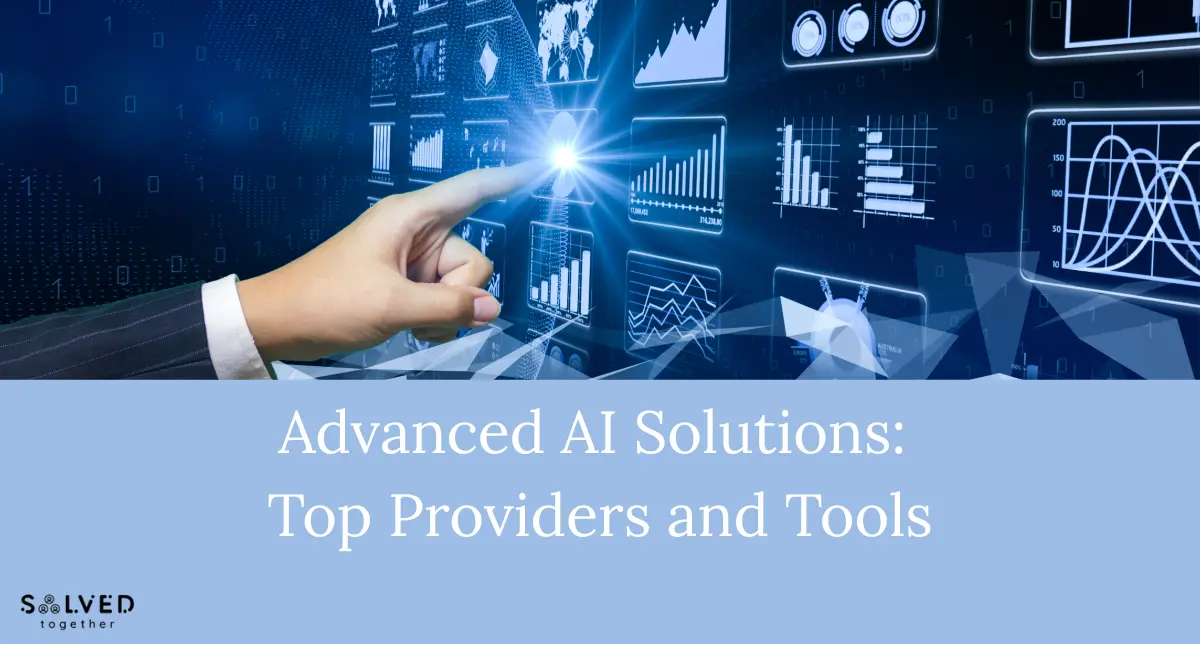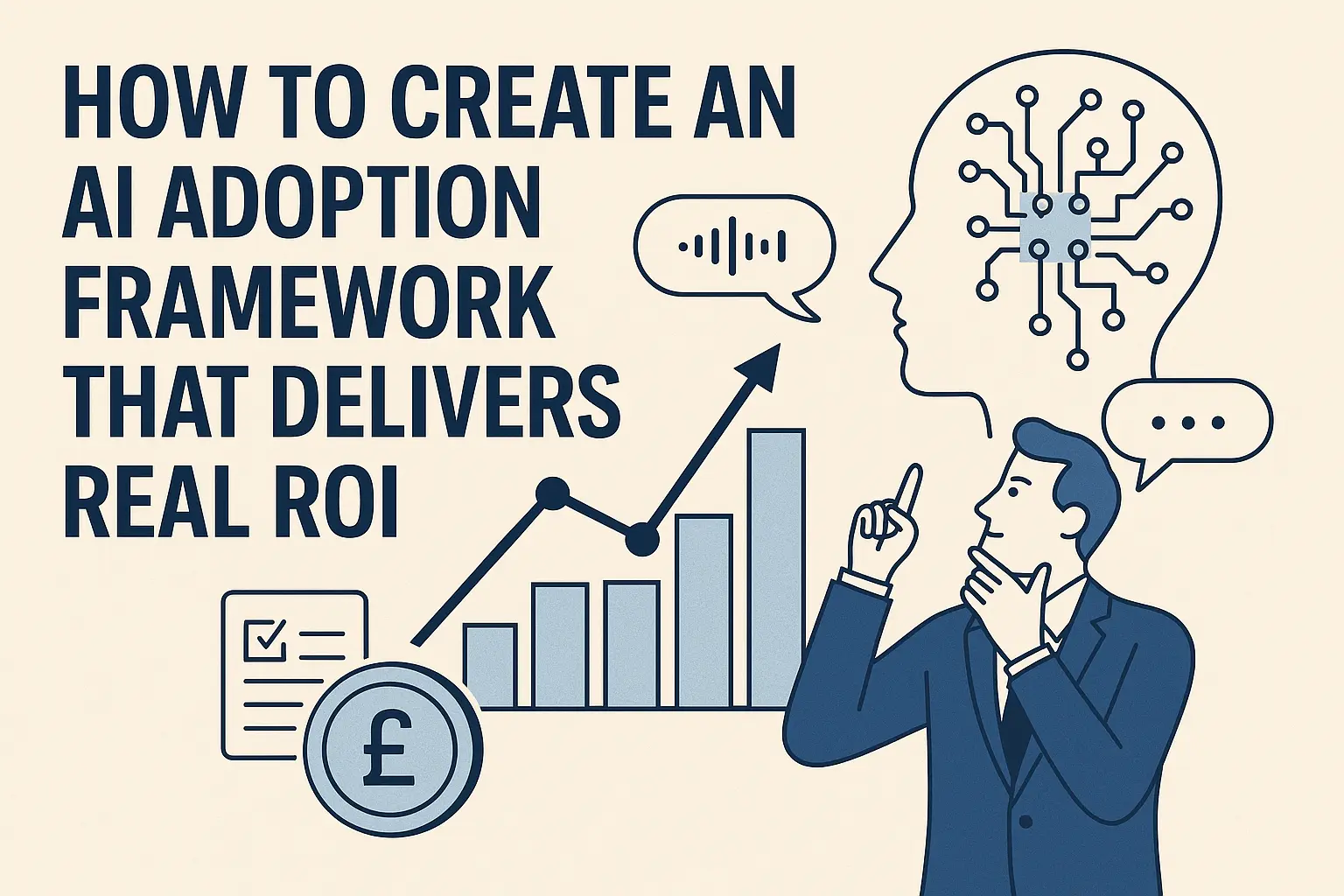Artificial Intelligence has moved well past the stage of being a novelty in the workplace. In 2025, advanced AI solutions are shaping competitive advantage across legal, accounting, and financial services sectors. These are not just tools to automate routine tasks—they are strategic enablers that enhance decision-making, streamline compliance, and create new service opportunities.
For midsize businesses, the pressure is mounting. Larger competitors have already embedded AI deep into their operations, while startups leverage nimble AI-first models to move fast. The gap in productivity, accuracy, and client experience is widening. If you are still relying solely on manual processes or outdated software, you risk being outpaced in both efficiency and innovation.
These advanced AI platforms are different from the “first wave” AI tools many companies tested between 2020 and 2023. They now integrate multi-modal capabilities, domain-specific intelligence, and real-time collaboration features. Even more importantly, they are designed to align with compliance frameworks, meaning adoption can be both ambitious and safe.
If you’re new to where AI is heading this year, I’d recommend also reading our companion article, Latest AI Advancements in 2025: What You Need to Know, which outlines the core breakthroughs and trends shaping these solutions.
Defining Advanced AI Solutions
Before diving into providers and tools, let’s set a clear definition. “Advanced AI solutions” in 2025 are characterised by four key traits:
- Multi-Modal Capabilities – Ability to process and generate content across text, voice, image, and video simultaneously.
- Domain-Specific Intelligence – Pre-trained with sector-specific knowledge, enabling accurate, context-aware responses in legal, accounting, and financial workflows.
- Real-Time Collaboration – Integration into live meetings, data analysis sessions, and decision-making processes.
- Governance and Explainability – Built-in transparency, bias detection, and compliance alignment with frameworks like the EU AI Act and UK AI Safety Standards.
For example, a standard AI chatbot might draft a simple email. An advanced AI solution could review a client’s financial statements, generate a detailed report with visual charts, cross-check compliance rules, and prepare talking points for a client meeting—without leaving your existing workflow tools.
These capabilities are now becoming essential, not optional. In fact, Gartner predicts that by the end of 2025, over 80% of midsize professional service firms will have at least one advanced AI system in daily use, compared to just 28% in 2022.
Why Midsize Firms Need Advanced AI Providers
In legal, accounting, and financial services, advanced AI adoption is about much more than speed—it’s about strategic advantage. Here’s why the choice of provider matters so much:
- Sector-Specific Adaptation – General AI may misunderstand industry nuances, leading to compliance errors or reputational risks. Providers that specialise in your field deliver safer, more reliable results.
- Integration Capability – Midsize firms often have complex legacy systems. Advanced providers can integrate AI without requiring a complete tech stack overhaul.
- Scalability and Flexibility – You may start with one AI use case (e.g., compliance monitoring) but expand to others (e.g., predictive analytics). Advanced providers plan for that growth.
- Regulatory Alignment – In 2025, providers must show that their AI meets explainability and governance requirements from day one.
Choosing the right partner isn’t about picking the flashiest demo—it’s about selecting a solution that accelerates your transformation and protects your business from risk.
Top Advanced AI Providers in 2025
The advanced AI market is crowded, but a few names are emerging as leaders for professional services. Below, we’ll explore providers known for delivering results in legal, accounting, and finance.
1. Microsoft Azure AI
Microsoft’s AI platform has made significant strides in sector-specific offerings. Through Azure OpenAI Service, firms can access models fine-tuned for compliance-heavy environments. Integration with Microsoft 365 Copilot means legal teams can draft contracts directly in Word with built-in risk analysis, and accountants can run financial projections within Excel while maintaining regulatory standards.
Key Strengths:
- Tight integration with widely used business tools
- Enterprise-grade security and compliance controls
- Scalable infrastructure for growing AI needs
2. Google Cloud Vertex AI
Google’s Vertex AI has positioned itself as a leader in custom AI model deployment. With built-in tools for explainable AI and bias detection, it appeals to financial services firms that must justify decision-making processes to regulators. Its multi-modal capabilities allow cross-analysis of documents, spreadsheets, and visual data for a complete view of client portfolios.
Key Strengths:
- Strong in data analytics and multi-modal processing
- Advanced explainability features for compliance-heavy sectors
- Flexible pricing for midsize enterprises
3. IBM watsonx
IBM’s watsonx platform has evolved from a natural language processing pioneer into a full-service AI environment. It offers pre-trained industry models for legal contract analysis, fraud detection, and audit efficiency. IBM’s heritage in enterprise computing also means deep integration support for legacy systems common in mid-tier firms.
Key Strengths:
- Pre-trained industry-specific models
- Proven integration with older IT systems
- Strong reputation in regulated industries
4. OpenAI Enterprise Solutions
OpenAI has transitioned from being a research leader to a dominant force in enterprise-ready AI. Its GPT-4.5 Turbo and emerging GPT-5 models are powering advanced legal drafting, predictive analytics, and automated compliance checks in regulated sectors. Through its enterprise platform, OpenAI offers secure, private deployments—ensuring sensitive client data never enters public training datasets.
For legal and accounting firms, this means AI assistants that can draft case briefs, summarise hundreds of financial records, or even suggest litigation strategies, all within secure environments. In finance, OpenAI-powered systems are already helping teams identify market opportunities by scanning and interpreting large volumes of unstructured data from reports, filings, and market news.
Key Strengths:
- State-of-the-art natural language understanding
- Custom fine-tuning for sector-specific needs
- Strong privacy and security guarantees for sensitive data
5. Anthropic’s Claude AI
Anthropic’s Claude AI is making waves in 2025 for its focus on safety and alignment. Designed to minimise hallucinations and ensure transparent reasoning, Claude appeals strongly to firms where accuracy is non-negotiable. Its conversational style also makes it easy for non-technical teams to adopt without extensive training.
In accounting, Claude can interpret complex regulatory changes and summarise their implications for internal policies. In law, it can draft clear, precise summaries of case law with full citations. For financial services, Claude’s ability to explain its reasoning is a critical compliance advantage.
Key Strengths:
- Built-in emphasis on safe, accurate outputs
- Clear, explainable reasoning steps
- User-friendly interaction for non-technical teams
You can also review Stanford’s AI Index Report for a comprehensive look at the current state of AI research and performance benchmarks.
Must-Have AI Tools for 2025
While providers supply the infrastructure and models, the real competitive edge comes from tools designed for specific business applications. In 2025, the most effective AI tools for professional services are those that blend automation with collaboration.
AI-Powered Compliance Platforms
These systems track evolving regulations in real time, automatically updating workflows and flagging non-compliant actions. They’re invaluable for midsize firms that lack large in-house compliance teams but still face stringent oversight from bodies like the FCA or SRA.
Predictive Analytics Dashboards
By combining historical data with current market and regulatory inputs, these dashboards forecast outcomes such as case results, audit findings, or investment risks. The best versions integrate with existing CRMs and ERP systems, so teams don’t need to switch between platforms.
Document Intelligence Suites
These tools go beyond OCR, using AI to understand and categorise content, extract key details, and even draft responses. For example, a legal document suite could review thousands of contracts, identify high-risk clauses, and suggest amendments—all in hours rather than weeks.
Real-Time Meeting Co-Pilots
Integrated directly into video conferencing platforms, these AI co-pilots can transcribe meetings, summarise key points, and provide instant data lookups or scenario modelling during discussions.
Evaluating the Right Solution for Your Firm

Choosing the best advanced AI provider or tool isn’t just a procurement decision—it’s a strategic move that affects your firm’s efficiency, compliance posture, and competitive position. Here’s a framework to make that decision with confidence:
- Identify Priority Use Cases – Focus on the business problems AI can solve fastest, whether that’s speeding audits, predicting case outcomes, or automating compliance checks.
- Assess Integration Complexity – Ensure the solution works with your current tech stack without requiring a full rebuild.
- Evaluate Governance Features – Check for explainability, bias detection, and compliance with regulations like the EU AI Act.
- Demand Sector Expertise – Select providers with a proven track record in legal, accounting, or financial services.
- Pilot Before Scaling – Use a short AI accelerator program to test a proof-of-concept before committing to full deployment.
If you want to rapidly test and implement the right AI solution for your business, try our AI Accelerator program.

.svg)








.svg)